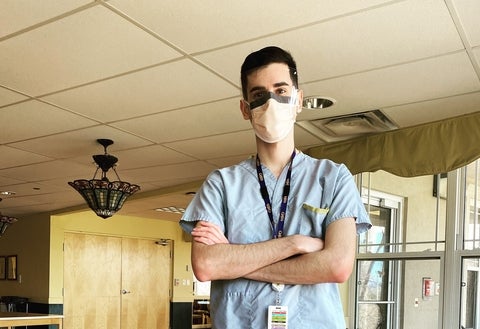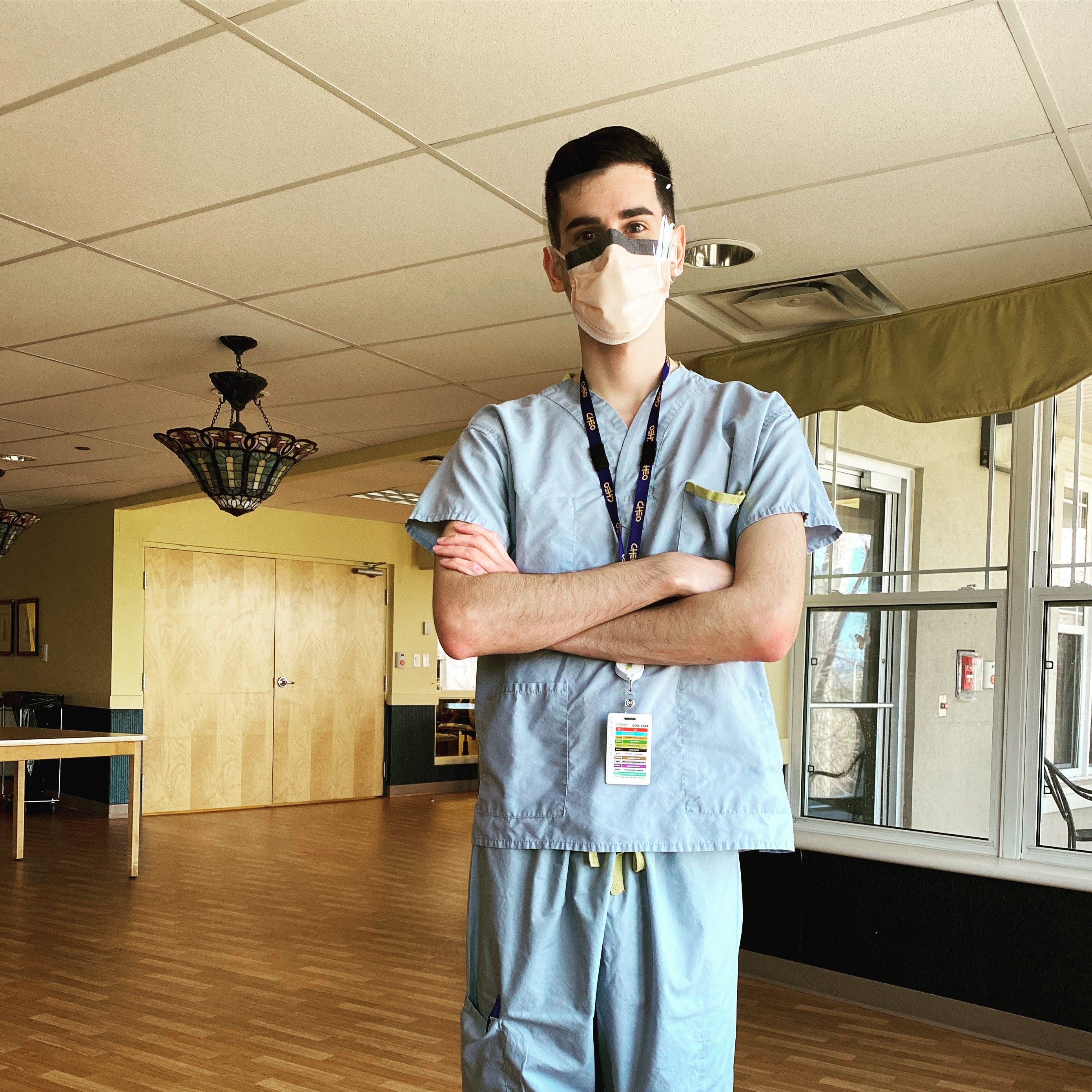
Alum Brad Murphy talks volunteering in long-term care during COVID-19
When COVID-19 first hit Canada, Brad Murphy’s (Rx2019) job at the Children’s Hospital of Eastern Ontario in Ottawa continued as normal. As a research pharmacist, he supports projects in pharmacogenomics — using an individual’s genetic markers to make decisions about their medications — in oncology and mental health, and he was able to keep working on those projects with little disruption.

“I had more flexibility since my work was primarily in research,” Brad says. “So, I decided to volunteer. I’m now deployed for two-week periods at a time. Because I’m volunteering with patients who are COVID positive, I’m no longer allowed back in the hospital, so my research work is continuing from home.”
Initially, Brad was the only pharmacist among approximately 80 volunteers. Most were paramedics and nurses. That group was broken down into smaller teams and given the task of testing all residents and patients in LTC homes throughout the Ottawa area. The goal was to get a clearer picture of how far COVID-19 had infiltrated these spaces.
After that testing was complete, the focus shifted to assisting staff members and providing care to their residents. Brad was sent to an LTC home with another pharmacist and two pharmacy technicians.
Being in the homes has definitely pushed out the edges of my comfort zone. But I had to help. I pictured if it was my grandparents and if they were going without being fed or bathed or socialized with, I would hope someone else would step up to the plate to help them. Doing this work has shown me a whole new side of health care.
Brad is in the role of Care Support Assistant and as such, he supports the nurses and personal support workers (PSW) as well as the residents, bringing meals, doing laundry and talking to residents. It’s heart-wrenching work at times. The conversations are sometimes stilted, but Brad does what he can, assisting with feeding residents and trying to answer their questions.
“You can’t imagine what it’s like until you’ve been here. It’s very surreal,” he says. “Many of the people I interact with have dementia and the change in routine is very disruptive for them. Simple things create challenges, like when you’re wearing PPE it’s hard to recognize people. Residents who could initially communicate by reading lips can no longer do so. It dehumanizes the care providers and it’s heartbreaking to see how that affects the residents.”
Brad’s pharmacy team at the Children’s Hospital has been very supportive of his volunteer work. It’s taught Brad to consider the many ways that health-care providers can have an impact.
“I’ve learned not to count myself short based on the training I have and my profession’s scope of practice,” he reflects. “I have skills that can be of help now. I’ve worked with so many other health-care providers of different backgrounds and we’re all just doing what we can right now. The experience has been humbling and it’s given me a new appreciation for colleagues of all kinds.”
Working in the homes is emotionally taxing as Brad supports many who are very ill or struggling with many different concerns. Adding to that, residents are cut off from their usual support circles, as LTC facilities are closed to visitors and the volunteers take on an even larger role in providing empathy for residents.
It’s hard not to let the overwhelming sadness of the situation get you down. But, I take it one day at a time and I try to bring humour and positivity wherever I go. There’s always a light you can find if you look hard enough.